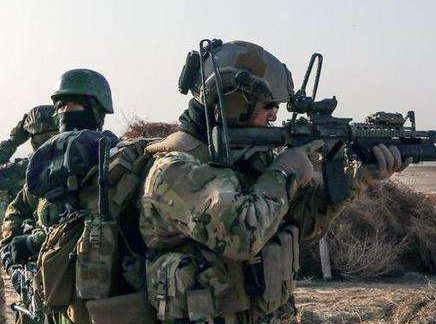(单词翻译:单击)
HARI SREENIVASAN: The coming battle for the ISIS capital, Raqqa, in Syria is beginning to take shape; 400 additional American troops, Marines and some Army Rangers will join 500 U.S. special operations troops already on the ground, with an array of Turkish and rebel forces. Russian and Syrian army troops are also there.
The top American general for Middle East operations, General Joseph Votel, was on Capitol Hill today in the Senate Armed Services Committee.
Chairman John McCain pushed him on a particular flash point: U.S. support for Syrian Kurdish forces, whom Turkey considers terrorists.
SEN. JOHN MCCAIN, R-Ariz.: I think there's a possibility of an impending conflict between Turkey and the Kurds, as opposed to us all working together to try to defeat ISIS and remove them from Raqqa. Do you see that as a scenario that we should be concerned about?
GEN. JOSEPH VOTEL, Commander, U.S. Central Command: I do, Mr. Chairman. And to that end, we are trying to take actions to prevent that from occurring.
HARI SREENIVASAN: For more, I spoke with Michael Gordon, the chief military correspondent for The New York Times, who said U.S. troops will play a key role in the upcoming battle.
MICHAEL GORDON, The New York Times: If you look at what we're doing in Iraq right now, and I have been there, the United States is providing artillery support, along with the French. It's providing — firing surface-to-surface rockets into Western Mosul. It's providing air support. And it's providing advisers.
And this is what has enabled the Iraqi forces to move forward in what is a very difficult fight. Well, something very similar is needed in Syria in we want the Syrian fighters to go into a town that's defended by 3,000 to 4,000 ISIS militants.
HARI SREENIVASAN: You were just there a couple weeks ago, and there's lots of different factions here who at certain times are working toward a shared goal and other times are working toward their own ends. It's a complicated situation.
Lay out the map for us a little bit.
MICHAEL GORDON: The map is a bit chaotic.
In Northern Syria, the Turkish military has intervened. And along with Turkish-supported opposition forces, Syrian oppositions forces, they have taken the town of Al-Bab. And, at times, the Turks have threatened to move on Manbij.
You also have hundreds of American troops there serving primarily as advisers. And they have helped train and equip the security forces in the town of Manbij. And more recently, the Syrian government and the Russians have moved into that area.
So it's a bit of a tinderbox right now.

HARI SREENIVASAN: Given all, who goes in to take Raqqa?
MICHAEL GORDON: Well, that's the billion-dollar question really.
What the Trump administration has done so far pretty much goes by the Obama administration's playbook. I mean, their idea was the local provide the fighters, we provide the firepower, and that's how we grab back territory from ISIS.
But the big question is, who are going to be the fighters who seize the town? And the most capable forces that the American military has found in the region is this YPG Kurdish militia. They're the ones that have the most experience fighting. They're the ones that played the key role in taking back Manbij.
They're the force that the American military is counting on to be a component, not the majority of the force, that takes Raqqa, but a key component of the assault force.
The problem is, Turkey considers them to be terrorists, and they have sort of drawn a red line at arming the YPG. But, unless we arm the YPG, they're in no position to help out in the Raqqa assault. And that's pretty much where things stand at this point.
HARI SREENIVASAN: All right, so best-case scenario, this operation goes as planned and we recapture this particular town or city. Then what?
MICHAEL GORDON: Well, I mean, there are a couple things.
First, best case from the American military's standpoint is, they work with the YPG, they give them anti-tank weapons, vehicles, machine guns, heavy machine guns, the Raqqa fight goes forward. That's going to be a long, difficult fight, just like Mosul is.
Then, once the capital of the Islamic State is retaken, a couple things happen. First, there has to be a day-after plan for who governs the city, who provides essential services, who is really going to be in control there. It can't be the YPG.
Second, the war with ISIS isn't over. I mean, they have already begun to move some of their senior leadership to Deir el-Zour. They're in al-Qaim in Iraq. They still have a shrunken caliphate in parts of Syria and Iraq. And so that fight has to go on.
And, lastly, steps have to be taken to avoid a confrontation between the Kurds and the Turks, who are our NATO ally. When I was in Syria with General Votel, I talked to the head of the Manbij military council, and I asked him, who is your greatest enemy, ISIS or the Turks? He said that Turkey is the main enemy.
HARI SREENIVASAN: All right, Michael Gordon of The New York Times, thanks so much.
MICHAEL GORDON: All right, thank you.


